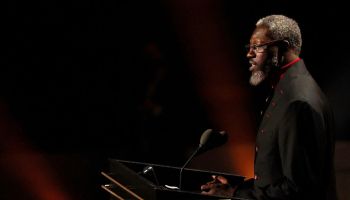In response to a violent series of race-related riots in East St. Louis, Ill., the NAACP staged a silent protest in New York City on this day in 1917. It was organized chiefly by scholar/author W.E.B. Du Bois, the NAACP and other community leaders who’s grown tired of the racial injustice in the country. The group ultimately hoped to get the attention of then-President Woodrow Wilson regarding the practice of lynching.
Earlier that year, riots broke out after the killing of two white police officers led to angry white mobs burning Black-owned homes and killing dozens of innocent Blacks. Reports conflict, but between 40 to 200 Black people were said to be murdered by the mobs while police and local armed forces did nothing to curb the violence. Some of the victims were hanged, stabbed and burned to death and over 6,000 people were reportedly forced from their homes.
The NAACP credits the day as the first silent march ever undertaken, a tradition the group heralds and still implements to this day. It was the first protest of its kind in New York City, and only the second public protest led by Black organizers. On the campaign trail, President Woodrow Wilson promised to promote Black causes and to help introduce anti-lynching laws.
Between 8,000 to 10,000 marchers walked in silence, with only the muted sounds of drums playing to keep time. The groups carried protest signs condemning the practice of Jim Crow segregation laws and the like.
Naturally, President Wilson did not live up to his lofty promises. It wasn’t until June 13, 2005 when the U.S. Senate finally recognized the injustice of its inability to pass anti-lynching laws in the early part of the 20th century. A bipartisan collective of senators introduced a resolution to formally apologize for blocking the enactment of that important legislation.
Like BlackAmericaWeb.com on Facebook. Follow us on Twitter.
Little Known Black History Fact: First NAACP Silent March was originally published on blackamericaweb.com
















